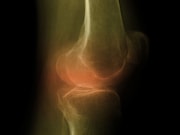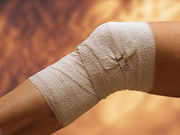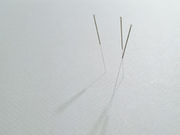Tag: Artificial Knees
Eligibility Criteria Limit Access to Arthroplasty for Minorities
Those with lower socioeconomic status, lower education level have reduced odds of being eligible
ACR: Walking Each Day May Cut Risk for TKA Over Five Years
Replacing 5 minutes of non-walking time with 5 minutes of moderate-to-vigorous walking beneficial
Regional Anesthesia Tied to Lower Opioid Use in TKA, THA
Findings based on comparison to general anesthesia for knee and hip arthroplasty
Less Pain Post TKA With Addition of Peripheral Nerve Blocks
Lower numeric rating scale pain scores on ambulation on postoperative days zero, one, and two
Multimodal Analgesia Cuts Complications Post Arthroplasty
Fewer respiratory, GI issues; reductions also seen in opioid prescriptions and hospital length of stay
AAOS: Participation in Sports Safe After Total Knee Arthroplasty
Only 3 patients in sports cohort had further operative intervention; no component revisions performed
Peri-Op IV Corticosteroids Benefit Knee, Hip Arthroplasty
Intravenous corticosteroids have good efficacy and safety when used perioperatively
Electrotherapy, Acupuncture Ease Post Knee Arthroplasty Pain
Meta-analysis shows drop in use of opioids for electrotherapy; delayed opioid use with acupuncture
Pre-Op Methylprednisolone Beneficial in Knee Arthroplasty
Linked to reduced circulating markers of endothelial activation and damage
No Need for Obese Patients to Lose Weight Before THR, TKR
Obese patients achieve about the same pain relief and improved function as normal-weight patients














